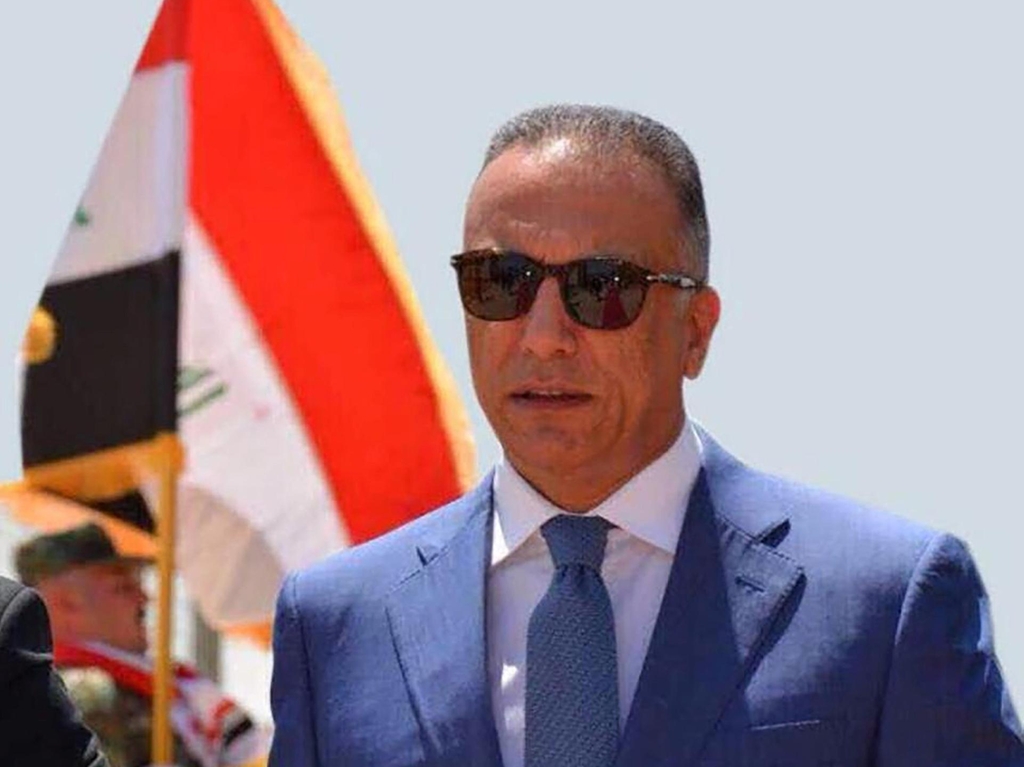GCC-Iraq partnership needs urgent attention
https://arab.news/waa72

Iraq’s parliament last week approved the remaining ministers in Prime Minister Mustafa Al-Kadhimi’s Cabinet, including Fuad Hussein as foreign minister, and the ministers for the oil and trade portfolios. With his Cabinet formation completed, Al-Kadhimi is expected to speed up the implementation of the government program he presented to parliament on May 6. He has very little time to do so, especially as his government is merely transitional, tasked primarily with preparing for new elections, which is a priority for protesters.
Hussein is a seasoned politician who was the minister of finance in the previous government. The Gulf Cooperation Council (GCC) has already expressed its readiness to work with him, through letters and statements made by GCC foreign ministers and the GCC secretary-general. In April 2019, the GCC signed an agreement with Baghdad to launch an ambitious strategic partnership that includes political and security cooperation, as well as economic. The two sides should prioritize the speedy implementation of that program.
Besides election preparation, Al-Kadhimi summed up his priorities as making sure that only state forces are allowed to bear arms and that Iraqi territory is not used to settle accounts or attack others. He also said that Iraq is seeking “brotherly and cooperative relations” with its neighbors and the rest of the world. He vowed to fight corruption and address rising unemployment.
In light of the devastation wreaked by the coronavirus disease (COVID-19) in the region, there is an urgent need to cooperate on combating the pandemic, addressing its socioeconomic repercussions, and dealing with the impact of the global recession on oil demand and prices.
Economically, Iraq has the potential to regain its position as a regional powerhouse thanks to its large oil reserves, water resources, and a highly educated population. That potential is hampered by a governance deficit and difficult security situation.
When Kuwait organized an international conference for the reconstruction of Iraq in 2018, two contradictory tendencies were evident. First, there was tremendous desire on the part of the international community to invest in Iraq. Scores of countries and international organizations took active part in the conference and committed about $30 billion for investment in the country. However, many raised concerns of governance and security. Together with political instability, those concerns explain the delay in disbursing the commitments made at the conference.
Al-Kadhimi’s government now enjoys a rare national, regional and international consensus and, as such, is in a position to move matters forward, while preparing for the next elections. On the economic front, it needs to address investors’ concerns in order to translate previous pledges into actual programs on the ground. As a first step, a coordination meeting with potential donors and investors is needed to reassess the situation. While security has improved significantly in some parts of Iraq, the resurgence of Daesh is worrying and investors need to hear a candid assessment from security officials and experts. In addition, investors need to reassess the governance issues raised in the Kuwait conference, in light of promises of reform made at the time by Prime Minister Haider Abadi.
While promoting investment requires some time to prepare the business climate and reassure investors, increasing trade flows can be achieved comparatively quickly. Arrangements could easily be made for extending lines of credits for merchants and arranging payments, shipping and distribution. Meetings between trade officials could be arranged to address trade barriers and put appropriate solutions in place.
Energy cooperation has already made significant progress, as the GCC Interconnection Agency, the bloc’s electric grid authority, explores extending its grid to southern Iraq.
However, the GCC-Iraq partnership could be hurt by voices coming out of Iraq advocating aggression against GCC countries, especially Saudi Arabia, Bahrain and Kuwait. Last month, two Iran-allied militias in Iraq called for terrorist attacks against Saudi Arabia. Abu Ali Al-Askari, a leader in the Kata’ib Hezbollah militia, which is an outspoken Islamic Revolutionary Guard Corps (IRGC) proxy, issued a bizarre statement saying that the only way to keep Saudi Arabia away from Iraq was by launching attacks against it “on its home territory,” calling for a repeat of previous attacks against Saudi Aramco’s facilities. Nasr Al-Shammari of Harakat Hezbollah Al-Nujaba, another IRGC proxy, issued a similar statement calling for “revenge” against the Kingdom.
Al-Kadhimi’s government is in a position to move matters forward, while preparing for the next elections.
Abdel Aziz Aluwaisheg
These two statements probably represented the IRGC’s frustration at Iraq’s success in forming a unity government and at the first moves and statements made by the new government in implying its desire to keep Iran’s interference at bay. However, they are also an ominous sign of possible escalation in the Gulf, trying to take advantage of the global preoccupation with COVID-19 and the talk about shifting US security priorities. The new Iraqi government has already declared its opposition to such escalation, but action is needed to scuttle any attempts to launch aggression against the GCC states from its territory.
Iraq and the GCC countries are active members of the Global Coalition to Defeat Daesh and are deeply concerned about the resurgence of the terror group. This is an area where the two sides could cooperate, together with other members of the coalition. While the coalition has been successful in degrading Daesh’s military capacity, more work needs to be done to end the final vestiges of its existence. The remaining work requires continued security cooperation, but it also needs to focus on economic and social dimensions. Addressing the enduring appeal of Daesh to young people is a key component in the fight against what remains of the group.
- Abdel Aziz Aluwaisheg is the Gulf Cooperation Council’s assistant secretary-general for political affairs and negotiation, and a columnist for Arab News. The views expressed in this piece are personal and do not necessarily represent those of the GCC. Twitter: @abuhamad1









































